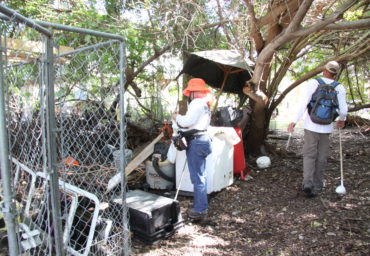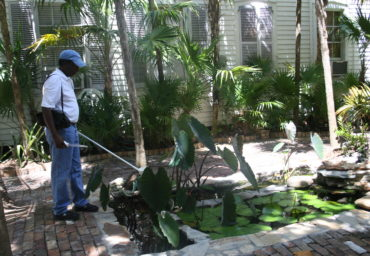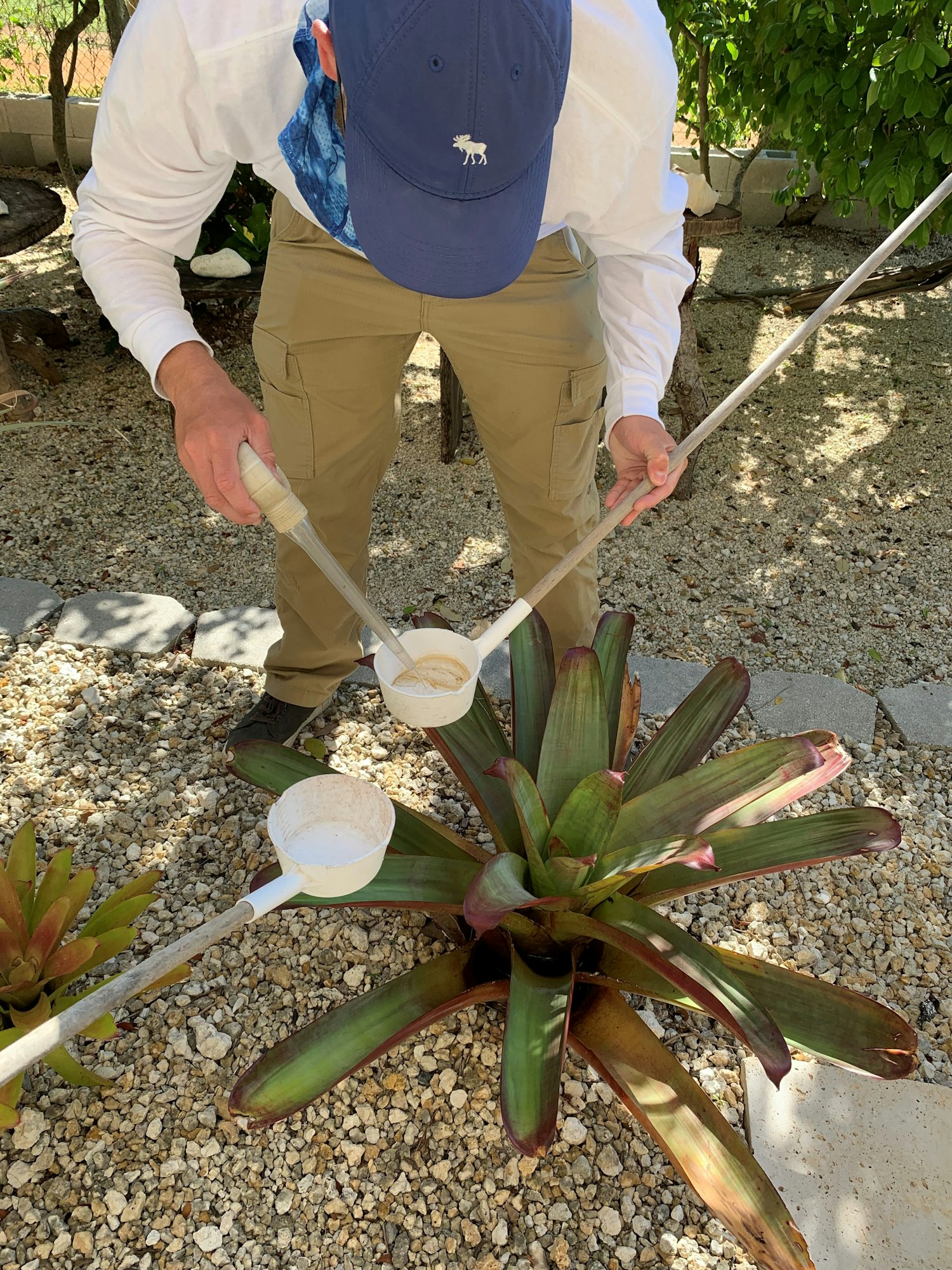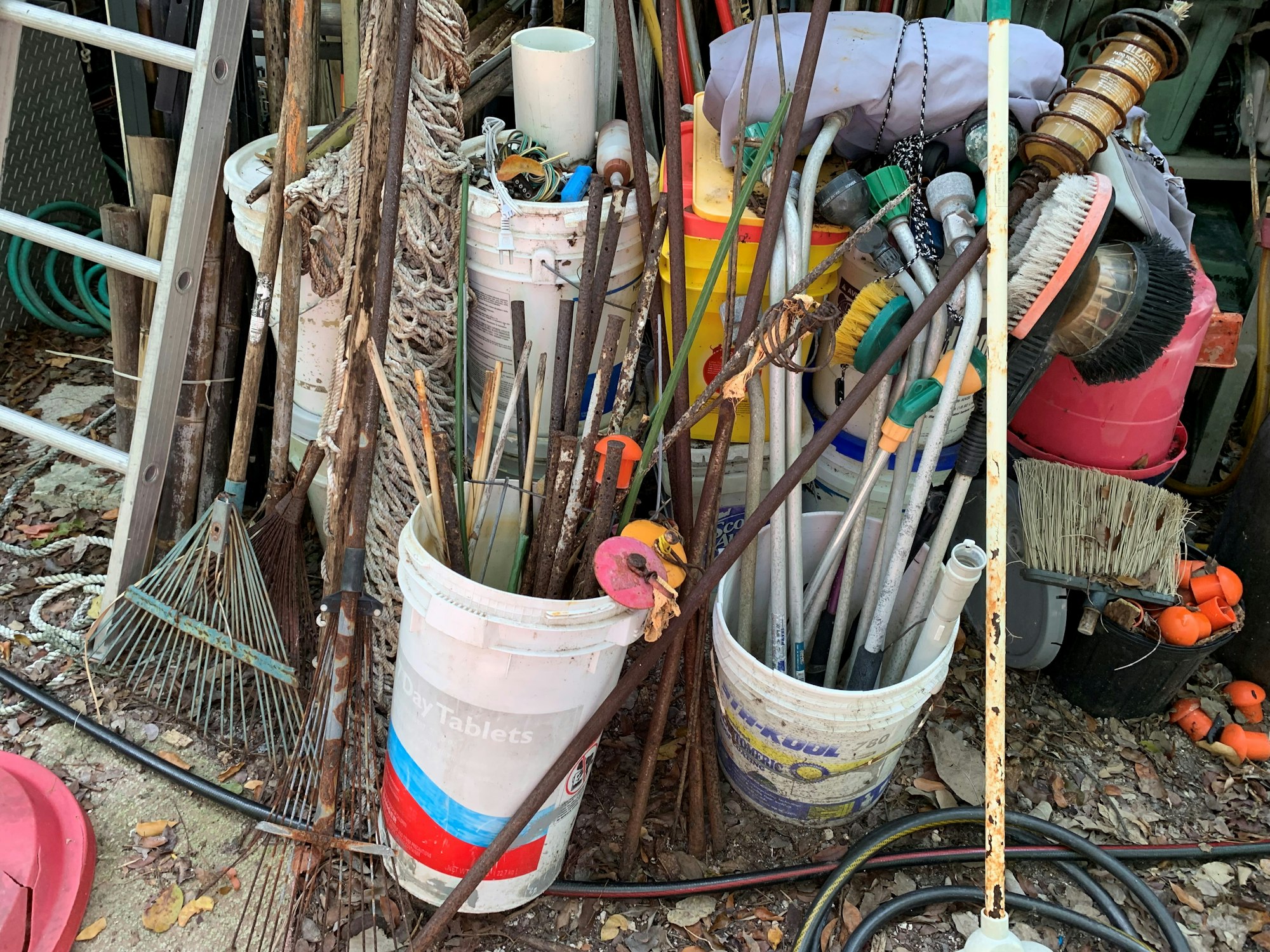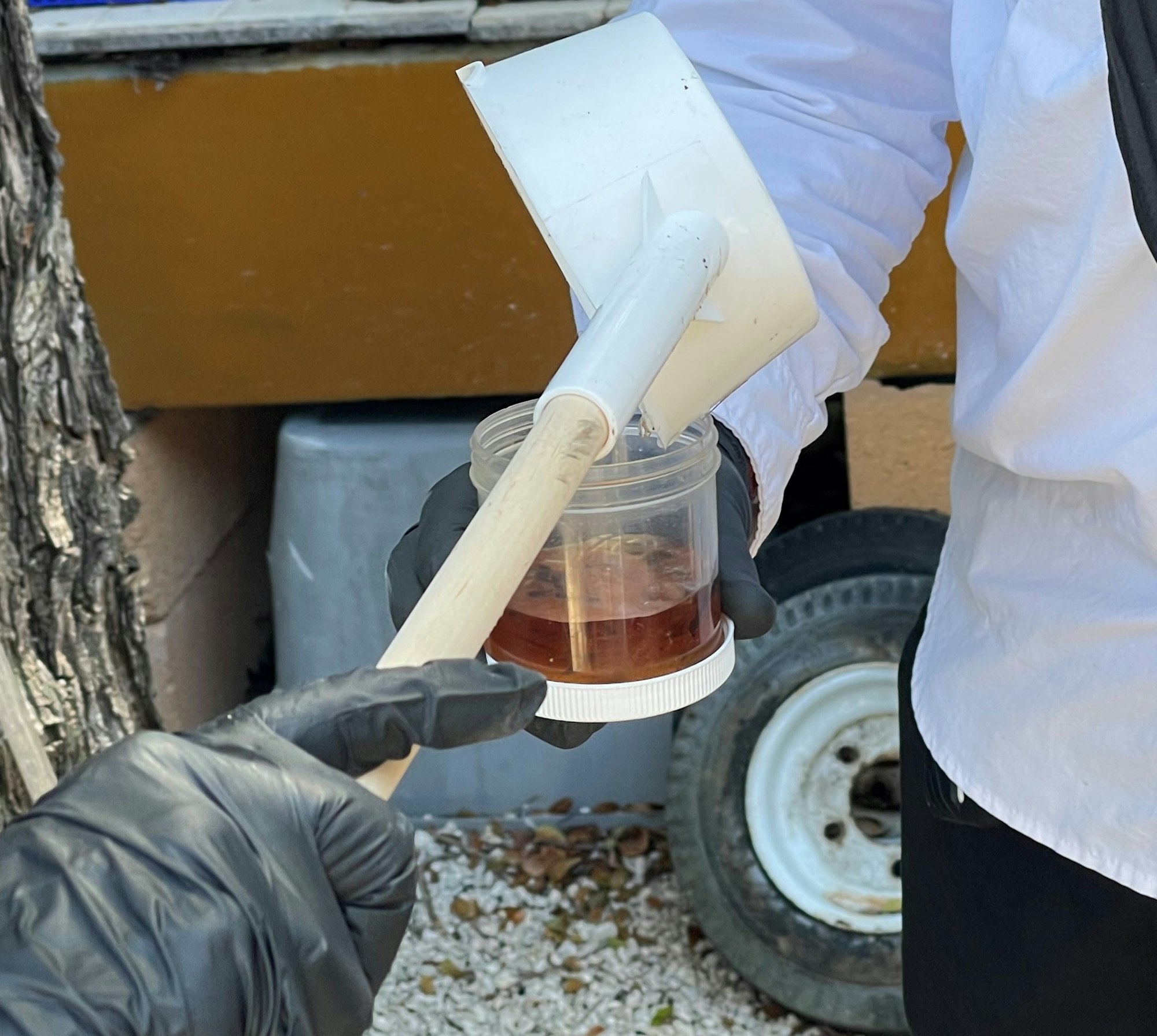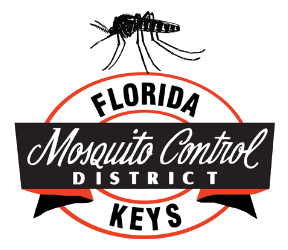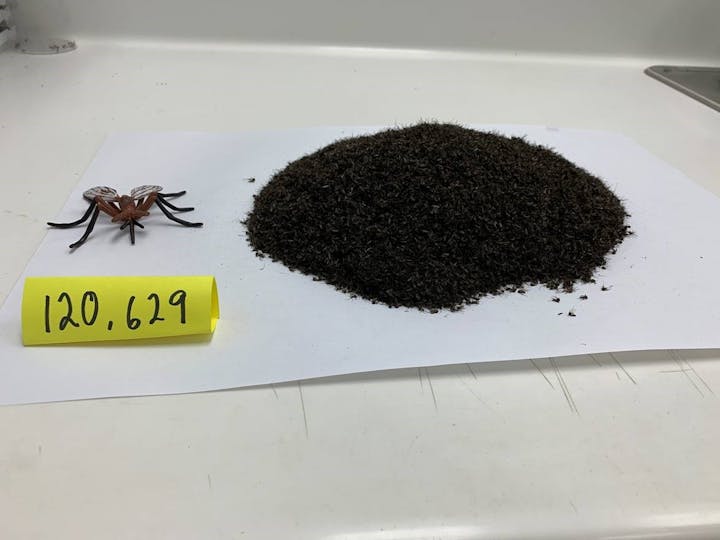Homeowner's Guide to Mosquito Control
Homeowners can play a vital role in protecting their residences and businesses from mosquitoes and their associated diseases. This video can show you how.
Florida Keys Homeowners Guide from Fl Keys Mosquito Control Dist on Vimeo.
Review the transcript of the video.Certain types of mosquitoes such as the invasive Aedes aegypti have evolved to live and reproduce almost exclusively around humans.
Female Aedes aegypti mosquitoes need blood to reproduce (like most mosquitoes). In urban neighborhoods she has everything she needs: people to bite and literally thousands of small, fresh water holding containers where she can deposit her eggs.
Mosquito eggs have the ability to remain dormant for months before coming into contact with water and hatching into larvae.
Once this happens, it only takes approximately a week for them to grow into adults themselves and repeat the cycle. The length of the larval cycle can vary greatly with ambient temperature. As a general rule of thumb, the warmer the weather, the faster mosquito larvae develop into flying adults.
In order to keep the number of Aedes aegypti mosquitoes at a manageable level, it is essential that residents take an active role in the process by walking around their respective homes and/or businesses and dump any standing water at least once per week.
As always, you can make a service request to have a trained inspector visit your own property to help identify and eliminate habitats for any type of mosquito.
Here is a list of potential mosquito habitats in your own yard. Check the photo gallery for 'hot spots' that have been identified by trained FKMCD inspectors. Remember, just a small amount of water in any type of container is an open invitation for a female mosquito ready to lay her eggs.
- Uncovered Trash Cans
- Uncovered Buckets
- Storage Bins (Check the Lids!)
- Boats/Personal Watercraft
- Tarps (Check the Folds!)
- Fountains/Bird Baths
- Debris Piles
- Old pools/hot tubs
- Air Conditioning Drip Trays
- Clogged Cutters
- Water Holding Plants
Check out the photos below that show common hot spots for domestic mosquitoes:

